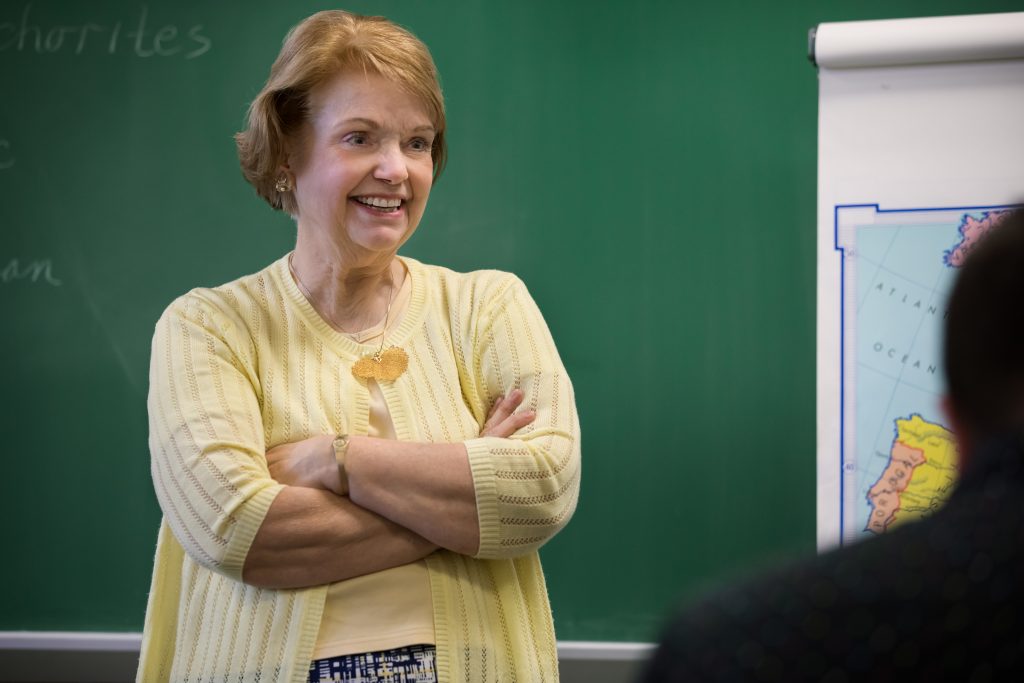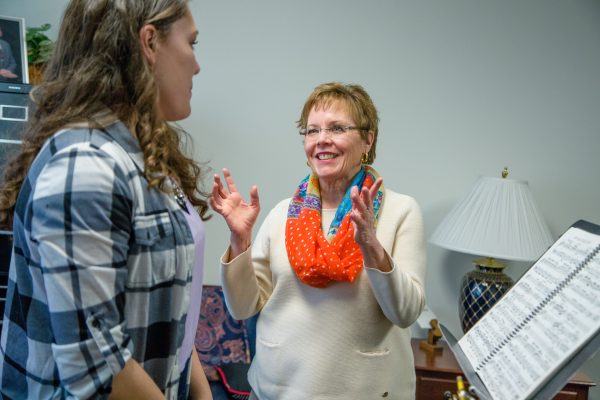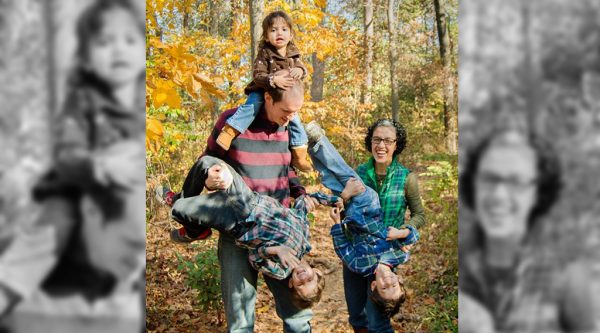“Why do we study history?” Linda Hayner asked her advisor.
“You want a philosophical answer, don’t you?”
“I guess so.”
He looked her right in the eye with the biggest grin on his face and said, “We study history because we like it!”
That answer was good enough for her. Linda Hayner had specifically chosen Dr. Burke as her advisor out of all the history faculty. He taught history of civilization at Western Michigan, and he was so animated. He just loved what he was doing. And she thought to herself, “I want what he’s got.”
Dr. Hayner, history professor at Bob Jones University, never looked back. To her, history is just fun. History lets you take a look at what other people have done, showing you that human nature doesn’t change. “We’re nosy people, I guess,” Hayner chuckles. “History tells us who and what we are. If we don’t know our antecedents, we don’t know who we are.”
History also contains many stories. As Hayner says, in history there’s “delight, there’s story, [and] there’s narration.”
But little did she think that by studying those stories the Lord would prompt her to write her own.
The Foundling
Hayner was researching 17th-century church records in the Guildhall Library in London for her dissertation. While searching she discovered countless records of foundlings left at the parish. In 17th-century England, the parish was completely responsible for the care of the poor. Hayner found many instances of children—not just infants, but toddlers of about 4 or 5—left at the parishes. The parents of these older children had tried to take care of them but just couldn’t. “And I just thought I had a good story,” Hayner says.
Based on a conglomeration of many historical foundlings, she created the character of Willy, a 4-year-old boy left on the porch of St. Pancras Church. He became the star of her first novel, The Foundling.
Before Willy came on the scene, Hayner’s writing had been mostly academic. But she had always enjoyed writing, and she found that she “really liked manipulating words.” So she talked to her fellow faculty member Dawn L. Watkins, now Dawn Apelian, who became her editor. After four years of hard work, Hayner completed The Foundling.
The Lord was able to use Hayner’s extensive history knowledge to give her a unique advantage as a historical fiction writer.
“What bugs the fire out of me about historical writers is that they don’t do their research,” Hayner laughs.
She knows her facts, and she put them to good use. Several of her characters, including the nurse and Master Perry, actually existed in history.
Ready for Use
As Hayner firmly believes, in studying history you also learn many skills. And every task we learn should be subject to the Lord’s service. She tells her students that college is preparation time. If you can’t follow instructions now, how can the Lord use you later? You can’t go to the mission field if you lack discipline.
“Personally I’ve never taken a class that has fallen to the ground,” she says. Even a class she took on Hinduism and Buddhism, which she thought was going to be a throwaway course, has served her very well. Every year in history of civilization, when talking about China and India, she uses the information she learned in that class.
Hayner didn’t plan to write fiction, but she was prepared to do so. Every class she took prepared and qualified her to write accurate and compelling historical fiction. And as she says, “In the end all those skills should be used for the Lord.”
Both The Foundling and Dr. Hayner’s second novel, Ellanor’s Exchange, are available through BJU Press.








